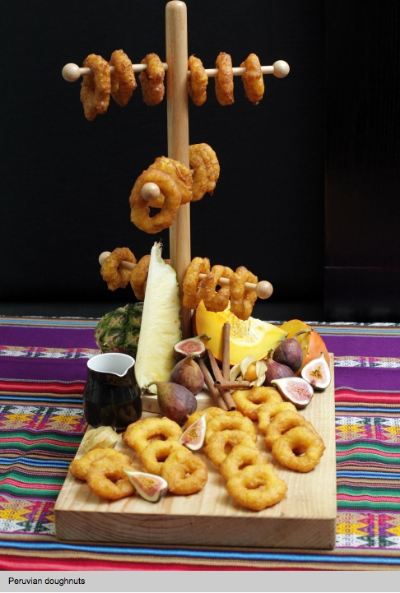our favorite finds from the front lines of food
A really great read: “Kelp Is the New Kale.” A New Leaf: Seaweed could be a miracle food—if we can figure out how to make it taste good. "Much as kale needed Barber and his ilk to turn it from a T-bone garnish into a way of life, kelp will need a chef to make us desire it." (New Yorker)
U.N. taps crowdfunding app to tackle refugee camp food shortages "The WFP, which requires $26 million a week to feed the 4 million refugees residing in countries bordering on Syria, earlier cut back its food rations to 1.3 million people due to a funding shortage in 2014." (Reuters)
America, Scotland Thinks You’re Ready to Eat Lungs Now We do love haggis, although I sincerely doubt it's about to sweep the nation with "tens of millions" of new American devotees as Scotland’s rural affairs secretary Richard Lochhead hopes. (Munchies)
Urban Ag in Detroit gets even bigger (although as always, more funding is needed) "Recovery Park and Detroit Mayor Mike Duggan announced last week an ambitious plan to create a 60-acre urban farm (35 acres of which comes from the government, through the Detroit Land Bank Authority) to be settled not with new houses for people but greenhouses and hydroponic systems for specialty produce. Recovery Park already operates a pair of smaller urban farms, growing vegetables like radishes, greens, and edible flowers and selling them to restaurants in the city." (Modern Farmer)
Restorative planning is for more than just urban blight: The Sushi Project: Farming Fish And Rice in California's Fields "The salmon project is likely within a year or two of overcoming the last bureaucratic obstacles keeping it from operating as a government-sanctioned method of mitigating environmental harm. Though less-developed, the forage fish venture offers the prospect of global impact by taking pressure off of wild fish stocks. Both projects suggest the rising influence of "reconciliation ecology," which argues for the reconfiguration of human-dominated landscapes to include other species as the only way left to sustain most ecosystems." (e360)
This Food Truck Spends Part Of Its Route Delivering Meals To Hungry Kids "As efficient as food banks are, they still have a hard time delivering food to the margins of our community," says Mike Zserdin from Made Possible By Us, the startup launching the truck. "A lot of times the people who need the food aren't able to get it at the delivery points." (Fast Company)



